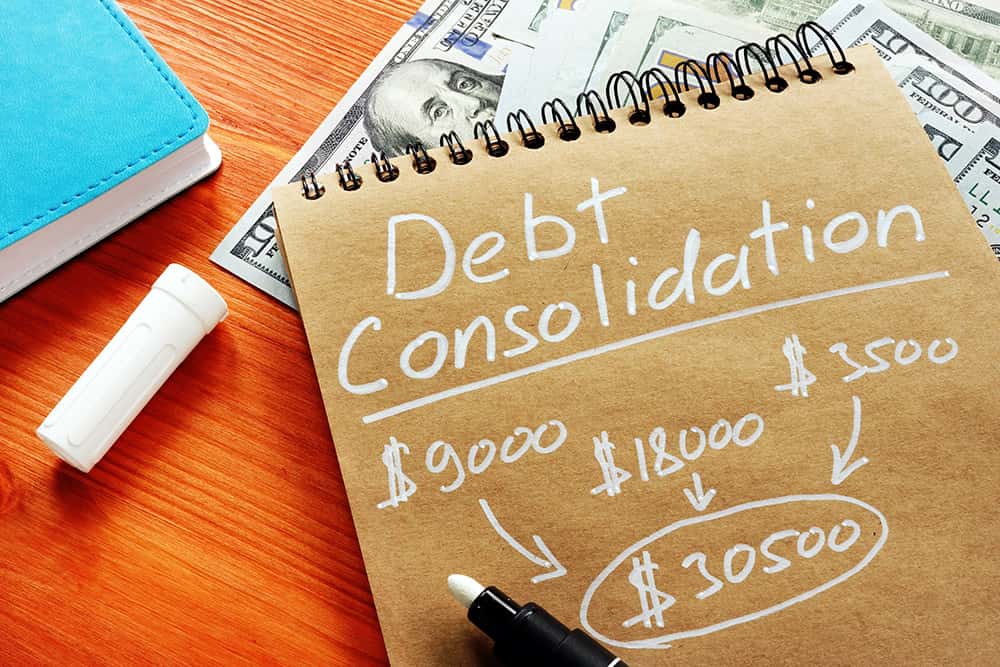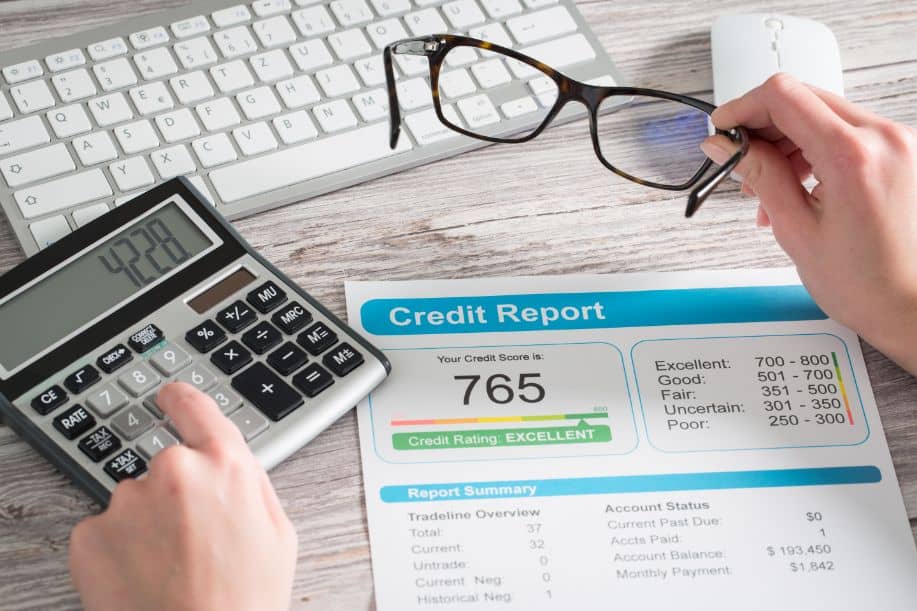
When it comes to debt, one’s options dwindle when the situation reaches the worst scenario. Acting quickly to prevent over-indebtedness from becoming serious could give you more remedies and fewer penalties.
These options include debt consolidation and a consumer proposal. What are the key differences between these two solutions and which one is better?
This article aims to explain the important details of these two debt solutions so that you can understand better and make the right choice.
Fill out our short online form so you can get free advice from a financial recovery expert. There is also no obligation on your part to hire any of our partners.
Sommaire
What is debt consolidation?
Debt consolidation is a popular method to achieve financial recovery when debts become too difficult to manage.
Simply explained, this approach consists of borrowing an amount from a consolidation lender that will be sufficient to repay all the other debts that you owe to your creditors. What is the purpose?
A consolidation loan will help you pool all your debts together so you can simplify your payments by having only one lender. It will also lower your interest rate payments and speed up your repayment period. However, you must qualify for a consolidation loan.
Consolidating your debts can be done in several ways:
- With a bank/financial institution
- With a private lender.
- Through mortgage refinancing.
- Via a personal line of credit.
Is debt consolidation ideal for YOUR debt situation?
A consolidation loan is a good option for people with high-interest debts, especially if they cause a huge drain on your finances. Examples include credit card debt, lines of credit, and personal loans.
For such individuals, debt consolidation could get them out of insolvency and help them avoid bankruptcy!
What is a consumer proposal?

A consumer proposal is a procedure provided for by the Bankruptcy and Insolvency Act. It involves submitting a repayment proposal to creditors that excludes a significant percentage of the debts actually owed. This offer must be accepted by a majority of your creditors!
What is the reason for creditors to accept partial repayment?
If creditors refuse the offer, you will most likely go bankrupt. In such a scenario, the creditors will get even less. In most cases, it is in their best interest to accept the proposal.
How does one file a consumer proposal? You will need to work with a bankruptcy trustee who will verify your eligibility, write the proposal, and submit it to the creditors.
If the proposal is accepted, the trustee will act as an intermediary between you and the creditors for the duration of the proposal.
The differences between consolidation and a consumer proposal
Debt consolidation and a consumer proposal have many similarities at first glance, but don’t make the mistake of thinking they are the same.
These two financial recovery procedures have very different consequences on your financial situation, on your state of indebtedness, and above all, on your credit file. Thus, we present to you a side-by-side comparison in detail for your consideration.
Comparative Table – Debt Consolidation vs. Consumer proposal!
|
| |
|
Mortgage Broker* |
|
|
*As long as the loan is repaid at term.
|
|
|
|
Savings of up to 80% in some cases. |
|
|
Prevent foreclosure. Freeze of lawsuits and collections initiated. Mandatory trustee intervention. |
The professional to consult for debt solutions

- For debt consolidation:
For debt consolidation, several professionals can come to your aid including a financial advisor, a financial recovery expert, or even a mortgage broker.
The latter can help you if you consolidate your debts through mortgage refinancing by comparing the rates and loans offered on the market. If you opt for a personal loan to consolidate, a financial adviser will also be able to assist you in order to compare the loans available.
- For a consumer proposal:
When it comes to a consumer proposal, only the trustee in bankruptcy is authorized to help you. Indeed, the law provides that the administration of a consumer proposal is an act reserved for trustees.
If you are considering a consumer proposal, a Licensed Insolvency Trustee is the only expert capable of helping you.
The impact on the credit report

- What is the impact of debt consolidation on one’s credit report?
If you follow the terms of the debt consolidation loan to the letter, your credit will remain intact.
Your credit rating is, therefore, not negatively affected by consolidating your debts, provided that you do not default on the loan granted.
- Take note; a consumer proposal will leave marks on your credit file.
It’s a different story for a consumer proposal. Submitting such an offer to creditors effectively releases you from your debts, but the price to pay is a mark on your credit rating.
Filing a proposal drags down your credit rating to R7 (the worst being R9 and applies in bankruptcy) for the duration of the proposal. And this mark will appear on your file for 3 years following the end of the repayment.
During this time, your borrowing capacity and credit conditions will be less favorable, that’s for sure!
The total amount of debts to be repaid
- Debt consolidation requires you to repay all your debts in full
Indeed, consolidation involves repaying your multiple creditors in full, using the consolidation loan obtained. You realize significant interest savings, but the principal amount to be repaid remains the same.
- The consumer proposal frees you from a good part of your debts!
On the consumer proposal side, you are released from a significant portion of your debts if the offer is accepted by your creditors. You can be released for as much as 80% of the amount actually due.
The interest rate to be paid
- How much is the interest rate for a consolidation loan?
The interest rates for consolidation loans are around 12%-14%, depending on the lender you choose and your financial situation. They are much lower than the interest of credit card debt at 20% but still, they are not negligible.
- Did you know that in contrast, a consumer proposal does not have interest?
A consumer proposal is designed to help individuals with financial difficulties due to over-indebtedness to get out of an impasse. This is why this repayment offer is interest-free.
Nevertheless, a consumer proposal causes damage to your credit. While it is without interest, it does carry a huge negative consequence.
Criteria for Eligibility
Whether you are interested in debt consolidation or a consumer proposal, know that you must meet certain criteria for eligibility.
If you don’t meet these requirements, you will have to turn to other much less advantageous solutions.
- What are the eligibility requirements for debt consolidation?
- A debt ratio of 40% or less.
- Sufficient income to pay the monthly payments.
- Stable employment.
- A credit score of 680 and above (in general).
- For a consumer proposal, you must:
- Have debts of less than $250,000 but over $1,000
- Reside in Canada (or own property in Canada)
- Be financially incapable of meeting current obligations over time
- Have total debt that exceeds assets.
The repayment term
For the terms of repayment, meaning the duration of the loan, the options for debt consolidation and a consumer proposal are the same.
A debt consolidation loan cannot go on forever! This loan will have a maximum duration of 5 years, which is also the same for a consumer proposal. The repayment period may be shorter compared to regular loans but by spreading it out over 5 years, the monthly payments are easier to pay.
The legal effects of the procedure

- Aside from paying off all your debts, consolidation has few legal consequences!
After all, it is simply a loan obtained from a financial institution that will be used to pay off your outstanding debts. There is no legal measure in itself to protect you.
- On the other hand, a consumer proposal provides solid legal protection!
A consumer proposal is a proceeding initiated through the Bankruptcy and Insolvency Act! As soon as it is filed with the Office of the Superintendent of Bankruptcy (OSB), all creditor proceedings and seizures are suspended.
This is called a “freeze on proceedings” and applies to all consumer proposals.
The steps to follow for your debt solution
Know the steps to follow to resolve your debt situation for debt consolidation or a consumer proposal.
- What are the steps to consolidate your debts?
- Verify your eligibility
- Determine how you will consolidate your debts
- Compare consolidation loans (personal, private, refinancing, etc.)
- Carry out the consolidation loan agreement and respect the terms
- For a consumer proposal, the steps are more complex!
- Consult a bankruptcy trustee.
- Determine your eligibility.
- Draft and file the proposal with the OSB.
- Send a notice to creditors.
- Let the creditors vote.
- Accept or reject the proposal.
- Implement the consumer proposal.
- Attend 2 meetings with a trustee.
- Repayment of the proposal (max. 5 years) and discharge.
Whichever option you choose, you will need a debt professional to implement it!
Advantages and disadvantages of debt consolidation

Generally, debt consolidation is the first solution considered by people in debt, and not without good reason!
It is a process that has several advantages and very few disadvantages to consider. Here are some of the pros and cons of debt consolidation!
The benefits of debt consolidation
- Savings in interest charges
- Establishment of a comprehensive repayment plan.
- Simplification of finances/over-indebtedness
- Preservation of credit rating.
The disadvantages of debt consolidation
- No reduction in the total amount of debt.
- Interest rate payments
- Strict eligibility requirements.
Advantages and disadvantages of a consumer proposal
In most cases, a consumer proposal is a recourse that allows you to avoid personal bankruptcy!
It is the last resort before resigning yourself to bankruptcy. This process has several advantages as well as disadvantages.
The benefits of a consumer proposal
- The discharge of a portion of your debts.
- Monthly payments adapted to your financial capacity.
- Prevents creditors from seizing assets or suing you.
The disadvantages of the consumer proposal
- Negative impact on your credit rating (R7).
- A mark on your credit for several years.
- Less advantageous borrowing conditions in the future.
How to choose between loan consolidation and a consumer proposal?

Loan consolidation or a consumer proposal? This is a question that seems difficult to answer at first glance, but fear not. By consulting a debt professional, the answer may be found in no time.
Follow these tips to help you determine which of the two approaches is best for your situation!
- Take stock of your financial situation.
Start by taking inventory of your assets and debts. Having a clear picture of the situation will help you see the extent of your debt situation and point you to the right financial remedy.
- Check your eligibility for debt consolidation!
Is your debt ratio less than 40%? Do you have an adequate income and a stable job? Most importantly, what does your credit rating look like? The answers will quickly tell you if consolidation is possible or not!
- Consult a Licensed Insolvency Trustee.
Are you considering a consumer proposal? In this case, only a trustee in bankruptcy can help you as it is mandated by law.
The initial meeting will assess whether this is indeed an interesting solution for you, or whether it is better to consider other options.
The trustee is there to help you find the right solution, not to condemn you to bankruptcy!
- Above all, act quickly, and before it's too late!
Whether you lean towards debt consolidation or a consumer proposal, the longer you wait before acting, the worse the financial consequences will be.
Choose the right solution with the help of Compare Home Quotes
Should you choose a consumer proposal or debt consolidation?
Surely, the answer lies with an over-indebtedness professional such as a licensed insolvency trustee, or any other expert capable of administering consolidation cases.
Compare Home Quotes has reputable and qualified professionals who can help you find the right remedy for your debt situation. You can get free offers from our partners to compare without any obligation on your part.
Fill out the form at the bottom of the page and we will be glad to refer you to the best professionals in just a few clicks.








